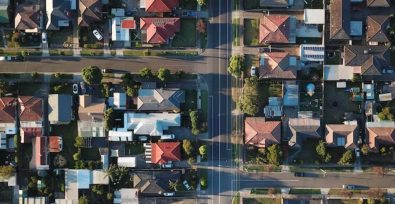The Australian federal government recently passed a funding boost directed at modern slavery survivors to help them access services such as migration and legal support. But according to new research, the current system remains fraught with barriers and lacks a survivor centered approach.
Survivors are left without access to vital support like housing and vulnerable to further exploitation. Systemic and structural changes are needed in addition to the increased funding to support survivors on the road to recovery.
New future, new home
Access to services for modern slavery survivors in Australia is currently linked to the state or territory the survivor is staying in. This means survivors are competing for housing alongside others facing a housing crisis. But when trying to secure safe housing, survivors face additional barriers that can make securing housing difficult, leaving individuals and families homeless and vulnerable to further exploitation.
Kyla Raby and Nerida Chazal, two of the researchers on the project, write in the Conversation:
The most significant challenges [to survivors finding safe housing] were linked to their lack of reliable income, insecure migration status and the ongoing effects of trauma.
While Freedom United welcomes the much needed funding boost for survivors in Australia, it can only be effective if policies and services are survivor centred and accommodate their unique needs.
Temporary visas, trauma triggers and no income
According to the research, a major issue is that housing providers often restrict temporary migrants from accessing their accommodation. Many trafficking survivors in Australia are migrants on a temporary work visa, thereby excluding them from many housing providers as well as social housing, which is only available to citizens or permanent residents. These restrictions severely limit the options before survivors have even started looking.
Many housing providers also require ongoing, steady income. Visa restrictions and an inability to access income support often make this requirement difficult if not impossible for survivors as well.
Two housing providers surveyed said:
“Residents need to have work rights […] so they can transition to their own property.”
“It’s not people’s visa status that matters, it’s just the fact that temporary visa holders are often not on a stable income.”
Without a stable income survivors are again cut adrift, unable to qualify for housing or support themselves and leaving them extremely vulnerable to further exploitation.
On top of all this, the bulk of available housing is mainstream housing that cannot accommodate the particular set of needs or challenges often faced by survivors. Male survivors who have a partner or family have very few options that will house them and their family together. Much of the mainstream housing also has a curfew restricting free movement which can be triggering for those only recently freed from exploitative conditions.
Currently there are only two examples of housing designed specifically to meet the needs of survivors across the whole of Australia. Housing that is survivor centered and designed with their needs and experiences should be expanded across the country to ensure access for all survivors and their families.
Housing access for survivors must be improved
Part of the challenge is that anti-slavery policy in Australia is a federal government issue while housing policy is made at a state/territorial level. That means cooperation and collaboration are needed to build a system better suited to support survivors on the road to recovery and prevent further exploitation. The need for increased cooperation and partnership between federal and state governments towards successful anti-trafficking efforts and survivor centered programs is not limited to Australia. The 2023 Trafficking in Persons Report (TIP) placed a huge imperative on partnership as key to ending modern slavery globally.
Under the heading Partnerships with Civil Society and Other External Stakeholders, the 2023 TIP Report states:
“Government partnerships with domestic and international NGOs, including survivor-led organizations, are critical to both a comprehensive response to trafficking cases and supporting national action plans as well as resulting programs and policies.”
Freedom United stands with those calling for the removal of restrictions that ban temporary visa holders from working or applying for social housing so survivors can find safe housing and support themselves.
As seen in both the TIP Report and the Global Slavery Index, the number of those living in modern slavery has been steadily growing. Our ability as a global community to understand, identify and help those who have experienced exploitation needs to grow too. Part of that growth must be ensuring basic human rights like access to decent housing for survivors in Australia and across the world.







Freedom United is interested in hearing from our community and welcomes relevant, informed comments, advice, and insights that advance the conversation around our campaigns and advocacy. We value inclusivity and respect within our community. To be approved, your comments should be civil.